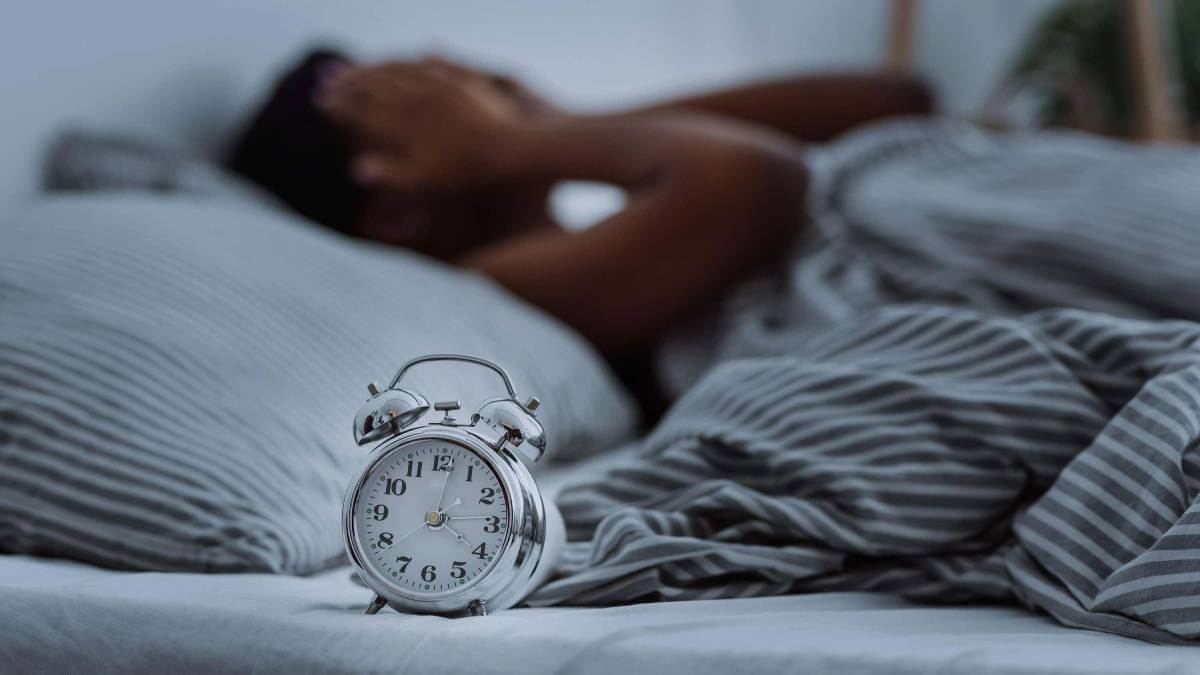Struggling to sleep is a sure-fire way to leave you drained, grumpy and unproductive, but when does a bad night’s sleep a few times on the trot become a real problem?
“If bad sleep is affecting your mental health, causing excessive daytime sleepiness, or insomnia, it is important to take action to address the issue before it becomes harder to manage, or starts to negatively affect your everyday life,” says Dr Elisabeth Honinx, neuropsychologist and researcher at health-tech company Moonbird.

Signs you’re not getting enough
You may not realise that disturbed sleep is putting your mental health at risk.
“Signs that interrupted sleep, or lack of it, may be impacting your mental health could include being moody and irritable, snapping at people during the day and poor concentration,” says GP Dr Suhail Hussain.
In fact, he says, “sleep and mental health are closely linked and poor sleep is often a sign of depression rather than the other way around.”
Even if your mental health is not struggling too much, you may need to speak to your doctor if you are lying awake with insomnia or feeling exhausted during the day.
View this post on Instagram
“Signs of long-term insomnia include poor focus, puffy, red eyes, dishevelled appearance and dropping off during the day, which could cause potential accidents,” says Dr Hussain.
Similarly, you should not be waking up too much at night.
“Waking up more than twice during the night could be problematic to your health,” Dr Hussain explains.
“You need quality shut-eye to include all four phases of the sleep cycle including rapid eye movement sleep. Each sleep cycle should last about 90 minutes.”
Take matters into your own hands
Take a look at what you can do before going to the doctor.
“First, evaluate your habits. This involves looking at the factors that may be contributing to your poor sleep quality, such as your sleep environment, the timing and duration of your sleep, and any activities or substances that may be interfering with it,” says Dr Honinx.

“I suggest you establish a regular sleep schedule and stick to it, even on weekends, and develop a relaxing bedtime routine, such as taking a warm bath, reading a book, or practising meditation or deep breathing exercises.”
“It’s also very important to create a comfortable sleep environment that is dark, cool, and quiet, so I recommend investing in blackout curtains, a sound machine, or even a humidifier to give you the best chance of getting to sleep,” she explains.
Speak to your GP about health concerns
View this post on Instagram
“If you feel like your sleep difficulties are caused by an underlying medical condition such as sleep apnoea, restless leg syndrome, or depression, or the symptoms are becoming unmanageable it’s best to speak to a doctor as you may need some form of medical intervention,” Dr Honinx explains.
A doctor may be able to provide all kinds of help.
“This could be as simple as light therapy, where you expose yourself to natural daylight to help regulate your circadian rhythm, or more intense therapies such as cognitive behavioural therapy, which helps you change negative thought patterns and develop healthy sleep habits.”
But, it is important to “work on creating a healthy sleep environment and improving your sleep hygiene before asking your doctor for advice on more effective sleep methods”, Dr Honinx says.
Do you struggle with a sleep routine? Have you spoken to a doctor about it? Let us know in the comments section below.
Also read: What to do if you’re struggling with a sleep routine
– With PA
Disclaimer: This article contains general information about health issues and is not advice. For health advice, consult your medical practitioner.

